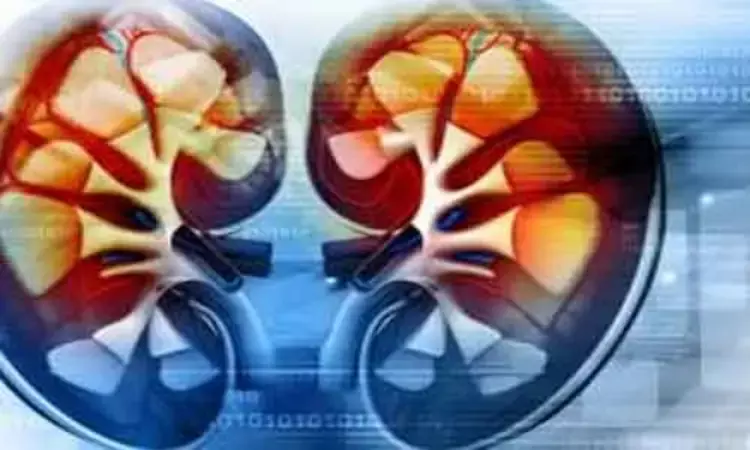- Home
- Medical news & Guidelines
- Anesthesiology
- Cardiology and CTVS
- Critical Care
- Dentistry
- Dermatology
- Diabetes and Endocrinology
- ENT
- Gastroenterology
- Medicine
- Nephrology
- Neurology
- Obstretics-Gynaecology
- Oncology
- Ophthalmology
- Orthopaedics
- Pediatrics-Neonatology
- Psychiatry
- Pulmonology
- Radiology
- Surgery
- Urology
- Laboratory Medicine
- Diet
- Nursing
- Paramedical
- Physiotherapy
- Health news
- Fact Check
- Bone Health Fact Check
- Brain Health Fact Check
- Cancer Related Fact Check
- Child Care Fact Check
- Dental and oral health fact check
- Diabetes and metabolic health fact check
- Diet and Nutrition Fact Check
- Eye and ENT Care Fact Check
- Fitness fact check
- Gut health fact check
- Heart health fact check
- Kidney health fact check
- Medical education fact check
- Men's health fact check
- Respiratory fact check
- Skin and hair care fact check
- Vaccine and Immunization fact check
- Women's health fact check
- AYUSH
- State News
- Andaman and Nicobar Islands
- Andhra Pradesh
- Arunachal Pradesh
- Assam
- Bihar
- Chandigarh
- Chattisgarh
- Dadra and Nagar Haveli
- Daman and Diu
- Delhi
- Goa
- Gujarat
- Haryana
- Himachal Pradesh
- Jammu & Kashmir
- Jharkhand
- Karnataka
- Kerala
- Ladakh
- Lakshadweep
- Madhya Pradesh
- Maharashtra
- Manipur
- Meghalaya
- Mizoram
- Nagaland
- Odisha
- Puducherry
- Punjab
- Rajasthan
- Sikkim
- Tamil Nadu
- Telangana
- Tripura
- Uttar Pradesh
- Uttrakhand
- West Bengal
- Medical Education
- Industry
Drug may reverse kidney damage caused by lupus

Systemic lupus erythematosus causes severe damage in multiple organs, including the kidney leading to the development of nephritis.
Yale researchers have found that a drug used for cancer therapy has shown promise in reversing kidney damage caused by systemic lupus erythematosus (SLE, or lupus), according to a Yale-led.The study has been published in the journal Science Translational Medicine.
"Kidney damage affects about half of the patients with lupus, sometimes leading-edge to renal failure with a requirement for dialysis or transplantation," said Joe Craft, the Paul B. Beeson Professor of Medicine (rheumatology) and professor of immunobiology. "Finding what causes that damage is extremely important."
Lupus is an autoimmune disease in which immune cells attack tissues in the body of the host, with kidneys being particularly susceptible in a condition called lupus nephritis. In lupus nephritis, the patient's own T cells infiltrate kidney tissue and trigger a decrease in oxygen, leading to tissue damage and potentially end-stage kidney disease.
Craft and lead author Ping-Min Chen, a former graduate student at Yale now a postdoctoral researcher at Harvard Medical School, investigated the effects these invasive T cells had in lupus nephritis. They found that the T cells implicated in lupus express a factor called hypoxia-inducible factor-1 (HIF-1), which is regulated by oxygen levels in the kidney. When activated, HIF-1 instructs the T cells to attack tissues, further lowering tissue oxygen levels and causing more kidney damage.
The researchers theorized that blocking HIF-1 might help prevent oxygen depletion and damage of kidney tissue. They used a drug to inhibit HIF-1 -- which has been used in clinical trials as a treatment for cancer in humans -- to treat mice with models of lupus. They found the drug slowed infiltration of T cells into kidney tissue and reversed damage. They also found that the same HIF-1 regulated damage is present in biopsy samples of SLE patients with lupus nephritis.
"The findings suggest this therapy might be beneficial in lupus nephritis," Craft said. "Since this drug and others that block HIF-1 function have been used in humans with cancer, they could be used for treatment of patients with lupus."
For more details click on the link: DOI: 10.1126/scitranslmed.aay1620
Hina Zahid Joined Medical Dialogue in 2017 with a passion to work as a Reporter. She coordinates with various national and international journals and association and covers all the stories related to Medical guidelines, Medical Journals, rare medical surgeries as well as all the updates in the medical field. Email: editorial@medicaldialogues.in. Contact no. 011-43720751
Dr Kamal Kant Kohli-MBBS, DTCD- a chest specialist with more than 30 years of practice and a flair for writing clinical articles, Dr Kamal Kant Kohli joined Medical Dialogues as a Chief Editor of Medical News. Besides writing articles, as an editor, he proofreads and verifies all the medical content published on Medical Dialogues including those coming from journals, studies,medical conferences,guidelines etc. Email: drkohli@medicaldialogues.in. Contact no. 011-43720751


